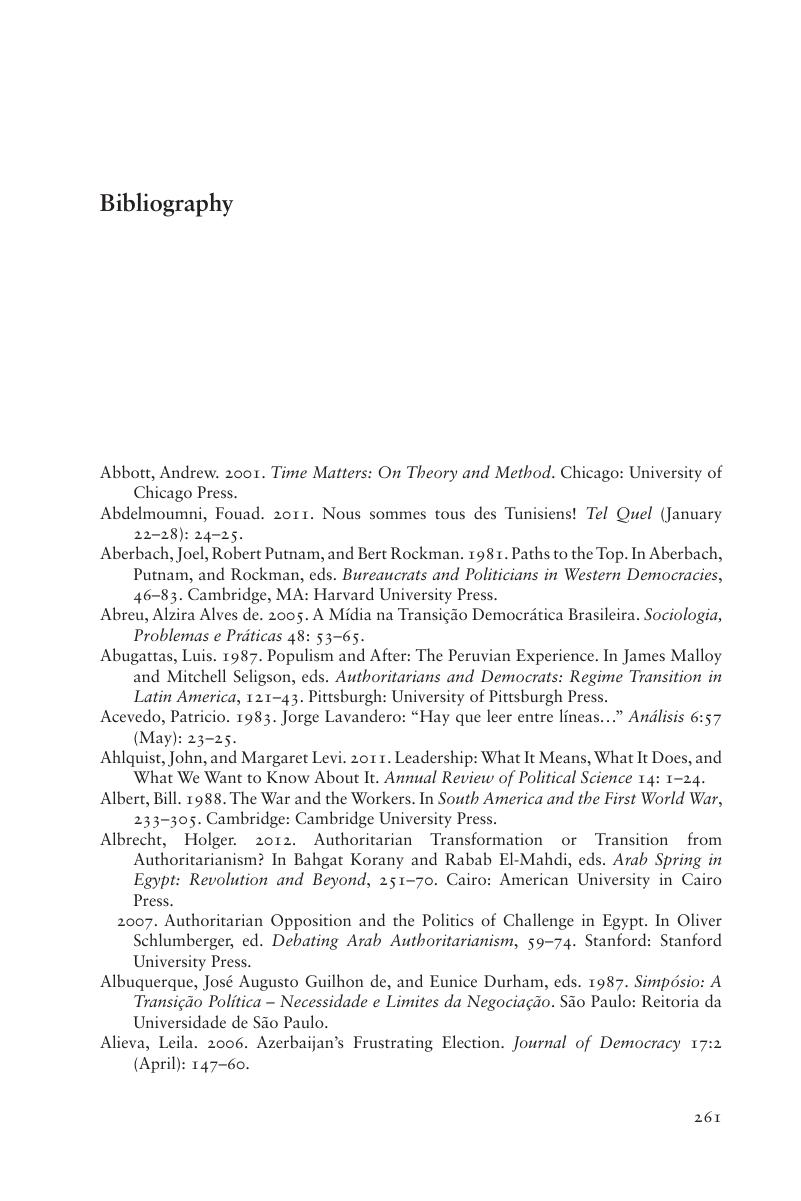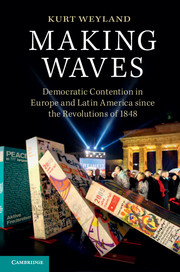Book contents
- Frontmatter
- Contents
- Acknowledgments
- 1 Introduction: Puzzling Trends in Waves of Contention
- 2 A New Theory of Political Diffusion: Cognitive Heuristics and Organizational Development
- 3 Organizational Development and Changing Modes of Democratic Contention
- 4 The Tsunami of 1848: Precipitous Diffusion in Inchoate Societies
- 5 The Delayed Wave of 1917–1919: Organizational Leaders as Guides of Targeted Contention
- 6 The Slow but Potent “Third Wave” in South America: The Prevalence of Negotiated Transitions
- 7 Crosscurrents of the Third Wave: Interorganizational Competition and Negotiation in Chile
- 8 Theoretical Conclusions and Comparative Perspectives
- Bibliography
- Name Index
- Subject Index
- References
Bibliography
Published online by Cambridge University Press: 05 June 2014
- Frontmatter
- Contents
- Acknowledgments
- 1 Introduction: Puzzling Trends in Waves of Contention
- 2 A New Theory of Political Diffusion: Cognitive Heuristics and Organizational Development
- 3 Organizational Development and Changing Modes of Democratic Contention
- 4 The Tsunami of 1848: Precipitous Diffusion in Inchoate Societies
- 5 The Delayed Wave of 1917–1919: Organizational Leaders as Guides of Targeted Contention
- 6 The Slow but Potent “Third Wave” in South America: The Prevalence of Negotiated Transitions
- 7 Crosscurrents of the Third Wave: Interorganizational Competition and Negotiation in Chile
- 8 Theoretical Conclusions and Comparative Perspectives
- Bibliography
- Name Index
- Subject Index
- References
Summary

- Type
- Chapter
- Information
- Making WavesDemocratic Contention in Europe and Latin America since the Revolutions of 1848, pp. 261 - 298Publisher: Cambridge University PressPrint publication year: 2014



